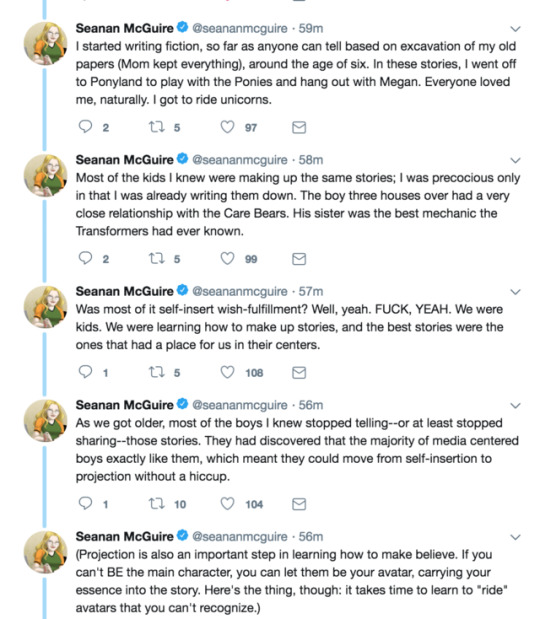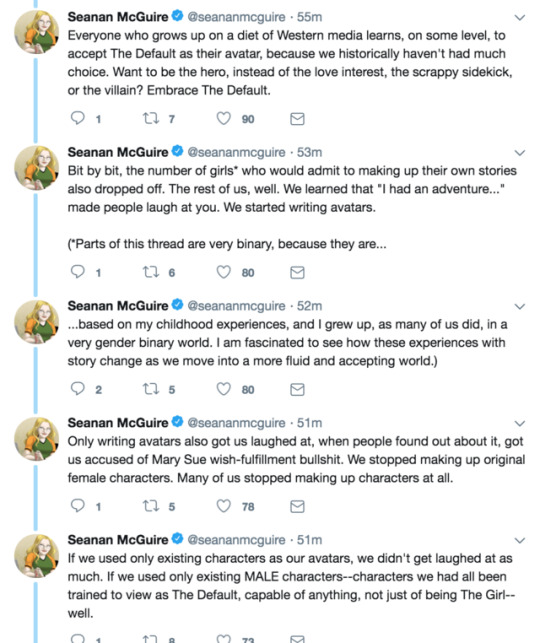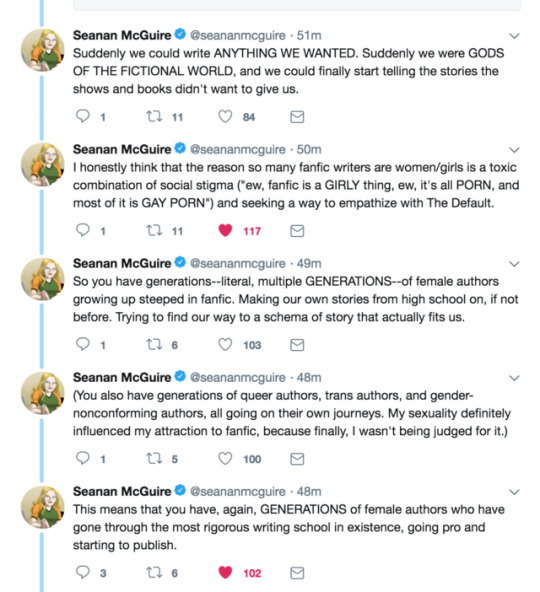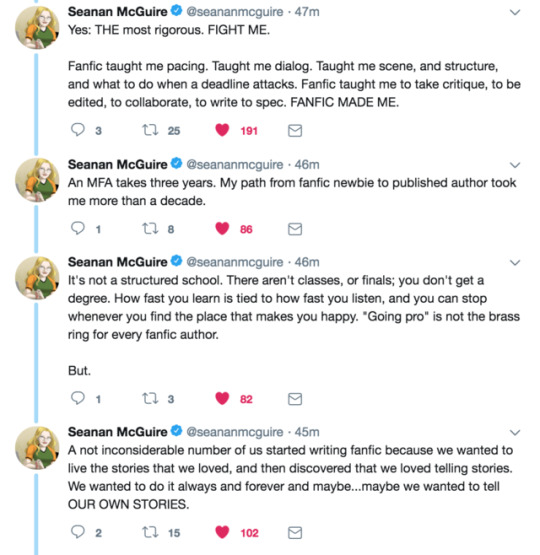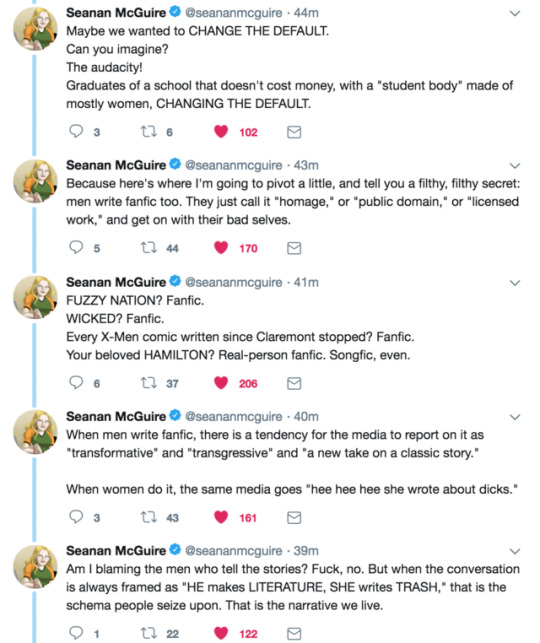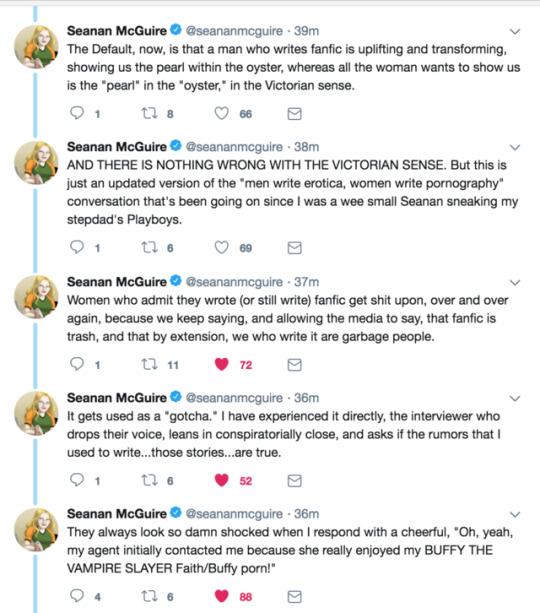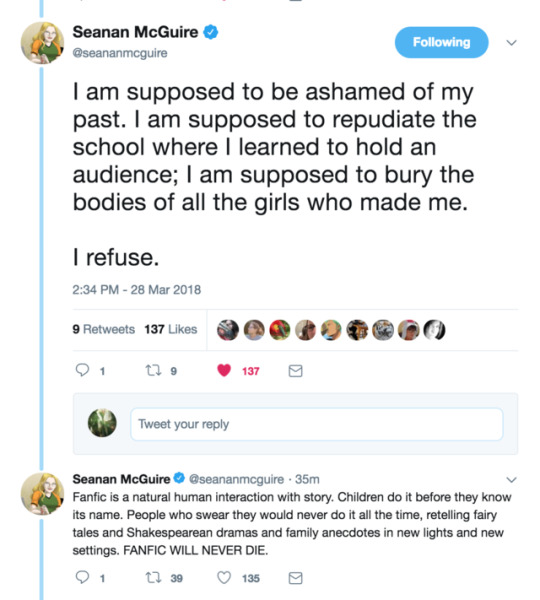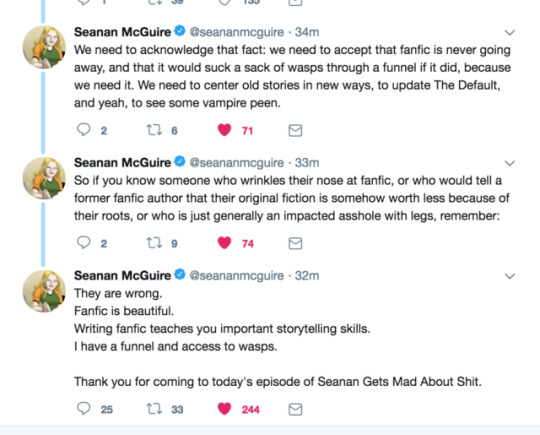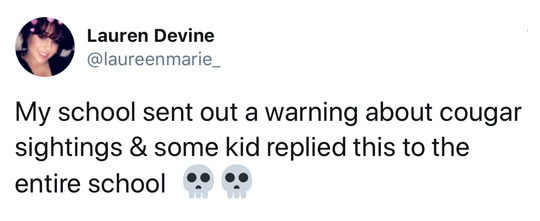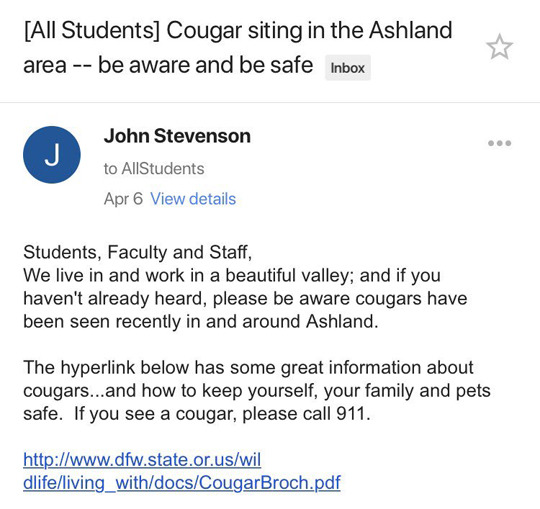bisexual male, not telling you how old. don't message me for personal details or ask me who I am, please. archiveofourown account under boethiah
Don't wanna be here? Send us removal request.
Text
here’s a handy checklist for anyone considering redeeming a villain!!!
are they…
❏ a wife beater? ❏ sexually abusive? ❏ violent towards small children? ❏ extremely racist? ❏ a goddamn fascist?
if you checked any of these boxes, not only should you not redeem that villain, but I’m also going to come to your house and pour sewer water into your sock drawer for even considering it
40K notes
·
View notes
Text
Once upon a time there was a city called Omelas, where everyone lived good and happy and fulfilling lives.
And in time it came to pass that a young man by the name of Outis came of age in that city; and, as with all who lived in that city, he was taken to a secret place where a wise elder showed him a small cold dirty room. And in that room there was a small cold dirty child, naked and hurt and starving, who had never known the least human kindness.
And the wise elder said to Outis, “In our city, everything is good and no one suffers. But it all depends on this child. If the least kindness is shown to him, our city will become like all other cities. There must always be such a child in Omelas.” …
…And Outis said to the elder, “If our city becomes like all other cities, many children will suffer.” And so he became a citizen of Omelas. And Outis led a good and happy and fulfilling life; and the child continued to suffer.
…And Outis said to the elder, “I will have no part in this evil thing.” And he walked away from Omelas. And Outis led a cold and short and brutish life; and the child continued to suffer.
…And Outis said to the elder, “I will have no part in this evil thing.” And he took the child and bathed him and cared for his wounds. And the city of Omelas became like all other cities; and many children suffered there.
…And Outis said to the elder, “I will have no part in this evil thing.” And he took the child and bathed him and cared for his wounds. And the city of Omelas carried on as it always had; and from that day forth no child suffered there.
…And Outis said to the elder, “I will have no part in this evil thing.” And he took the child and bathed him and cared for his wounds. And the city of Omelas became like all other cities; and many children suffered there.
But Outis, who would leave no child to suffer, worked tirelessly to save each one of them, and to build with his own hands a city in which everyone lived a good and happy and fulfilling life; and so in time it came to pass that the latter days of Omelas were greater than the former. And for ten trillion years Omelas carried on, and no child ever suffered there again.
…And Outis said to the elder, “Nevertheless, this child is my son, and I will not leave him to suffer.” And he took the child and bathed him and cared for his wounds. And the city of Omelas became like all other cities; and many children suffered there. But Outis did not care, because he valued the well-being of his son over all of them.
…And Outis asked the elder, “Why?” And the elder showed him to a library filled with books. And Outis studied the books for many years. And when he was an old man with a gray beard, Outis went out of the library and returned to the child and took the child out of the room, and in the child’s place he put a stone. And the stone was naked and dirty and cold; and the child Outis took and bathed and cared for. And Omelas carried on as it always had; and from that day forth no child suffered there.
Once upon a time there was a city called Omelas, where everyone lived good and happy and fulfilling lives; except for one child, who suffered so that the city might prosper. And all who lived there knew of this…
…And each citizen of Omelas, having looked into himself and seen that he would stand by while a child suffered in abject misery, found in himself a new willingness to do dark and evil deeds. And in time, all those who lived in Omelas suffered.
…And each citizen of Omelas lived with the gnawing guilt of his complicity, and the abiding terror that his own child would be chosen as the next to suffer. And in time it seemed to them that they could take no joy in any of the glories of Omelas.
…And one night, the child rose up and went out of his room and killed all the people of Omelas in their sleep.
Once upon a time there was a city called Omelas, where everyone lived good and happy and fulfilling lives. And each morning, each citizen of Omelas was taken to a small cold dirty room, and shown a small cold dirty child, and told that the child must suffer so that his day might be filled with all good things.
And all in Omelas agreed that it was better that one child should suffer than many; and none of them ever asked if it was the same child they saw each morning. And after all, one small cold dirty child looks much like another.
Once upon a time there was a city called Omelas, where everyone lived good and happy and fulfilling lives; except for ten thousand children, who suffered so that the city might prosper. And all who lived there knew of this…
…but none of them were ever taken to see the children in person, so none of them ever did anything about it.
…and whenever anyone saw such a child and “shouldn’t we rescue that suffering child?”, the other citizens of Omelas laughed and replied to them, “Naïve fool! Don’t you know that a child must always suffer in Omelas, so that the city may prosper? Otherwise it would become like all other cities, and many children would suffer.”
And everyone nodded wisely and went along with their days; and so ten thousand children continued to suffer where it might have been only one.
Once upon a time there was a city called Omelas, where everyone lived good and happy and fulfilling lives.
And in time it came to pass that a young man by the name of Outis came of age in that city; and, as with all who lived in that city, he was taken to a secret place where a wise elder showed him a small cold dirty room. And in that room there was a small cold dirty child, naked and hurt and starving, who had never known the least human kindness.
And the wise elder said to Outis, “In our city, everything is good and no one suffers. But it all depends on this child. If the least kindness is shown to him…”
“…the city will continue on as it always has, only your internet will be slightly slower.”
And Outis went back up into the city, and on that day he became a citizen of Omelas; and the child continued to suffer.
“…the best predictions of our scientists suggest that there will be a slight average decrease in various hard-to-measure kinds of happiness, which nevertheless in total adds up to more suffering than this child experiences.”
And Outis said to the elder, “I will have no part in this evil thing.” And he took the child and bathed him and cared for his wounds. And the average happiness increased in some ways and decreased in others, and the net effect might have been negative, but the best results on the matter had p > 0.05, so the scientists of Omelas could not rule out the null hypothesis.
Once upon a time there was a city called Omelas, where everyone lived good and happy and fulfilling lives.
And in Omelas there was a naked dirty child in a small dirty room; because the child was agoraphobic and was making mudpies.
Once upon a time there was a city called Omelas, where everyone lived good and happy and fulfilling lives.
Very few people told stories about Omelas, but it was a very nice place to live in.
23K notes
·
View notes
Text
my primary reaction to infinity war is like…. wow. under hypercapitalism we literally can’t imagine any other fables about resource scarcity, huh?
i’m not even talking about only thanos. every time thanos said his plan to kill half the galaxy (because it’s “finite,” lol ok one-semester-of-econ guy) the other characters were like “no!” or “you can’t!” or “that’s madness!” instead of… counter-arguing, or saying anything like “couldn’t you just… double the resources with a snap of your fingers?” obviously, nobody wants thanos to murder all those people, but it’s also as if everyone tacitly accepts his framing of the problem. “i want to kill half the universe because of resource scarcity,” he says, and everyone says “no, that’s too cruel!!” instead of “wait… wait just a fucking second there, paul ryan.” they don’t even have a line like that even when they’re talking amongst themselves, just musing at how twisted his worldview is, that he can only imagine infinite power as an infinite power to kill. no time is spent imagining an alternative.
and i can’t help but think about how we in the quote-unquote “first world” treat the resource consumption of the so-called “developing world.” we, who have enjoyed the pleasures and benefits of fridges and air conditioning and televisions and cars and convenience food and all that shit for generations: we look at the growing energy & plastics consumption of the developing world and go “uh oh, they’re really running the tab up over there, we can’t let this happen, think of the…. trees!!!” we have the audacity to act like people living in poverty in the tropics wanting window fans is selfish and short-sighted for the environment, and meanwhile we use and waste all the energy and resources we can get ahold of, like a continent full of montgomery burnses.
infinity war could have taken thanos’s approach to scarcity somewhere bigger: somewhere that was useful as a parable for our hypocrisy. the way that ragnarok was brave enough to make a parable of empire; the way that black panther could explore diaspora and identity; the way that the winter soldier actually had something to say about the surveillance-terror state. but for all the moving pieces of infinity war, i don’t think it knew where its central ethic rested. certainly, its characters showed the desire to preserve and protect life. but that’s true of any superhero film.
what it comes down to for me, is that it’s not enough for this movie’s theme to be “let’s protect people, because killing people is bad!” or even, sorry steve, “we don’t trade lives.” it’s not enough. thanos basically says, “there’s one bowl of soup and one spoon and two hungry people, so one of them has to die.” so what i needed was someone to openly reject that whole proposition. not just “no, you shouldn’t kill trillions,” but “no, that is fucking ludicrous, i reject that worldview. i reject human life as a brutal competition. group survival, even in the face of scarcity or hardship, is exactly what the fuck we developed culture for.” like, we could use that message. that message, delivered palatably in a blockbuster action movie, could do some good.
but it wasn’t really in there. maybe in little bits, in pieces. maybe. so i’m sure we’re going to have to endure a bunch of “welllll, thanos was a bad guy, but he did have a point about scarcity” metas. because we’re still failing to see how asking other people to die so that the rest can enjoy plenty is itself exactly the fucking problem on this bitch of an earth
17K notes
·
View notes
Text
I’m not sure what the point you’re trying to make is? Like, people being attracted or not being attracted to you isn’t an indicator of anything beyond that?
?_?
i’m a trans girl and it’s honestly so telling that the only lesbians who ever find me attractive aren’t cis, and the only cis women who ever find me attractive are bisexual.
just some food for thought.
34K notes
·
View notes
Text
QUESTION TIME
So, fellow bisexuals (and pansexuals too, I guess), do you notice recurring themes in the people you’re attracted to regardless of gender?
I seem to trend towards domineering/assertive individuals (joker from persona 5, indiana jones, vriska serket when I was 14, captain marvel) myself.
0 notes
Photo
Daily reminder that this version of Harley eventually got a happy-ish ending.

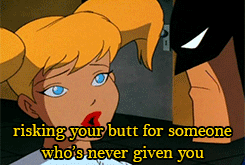


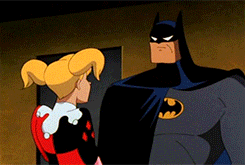
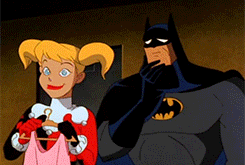

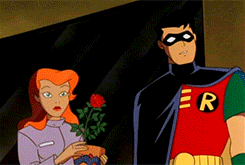
306K notes
·
View notes
Photo

Daily reminder that Gizmodo is a piece of shit website that doesn’t let people enjoy anything.
118K notes
·
View notes
Text
it baffles me how ppl take any game with a “bad thing” in it as automatically glorifying it, like the ppl who worry about Doom turning kids into devil-worshippers, but it’s only the “bad things” they personally find objectionable that do that, and the barrage of post-9/11 games that give you the objective of gunning down anyone with a turban on their head are perfectly fine, apparently
1 note
·
View note
Text
Batman gave me unrealistic expectations about billionaires giving a shit about other people
916 notes
·
View notes
Text
really don’t like that your two choices on the internet are ‘the earth is flat and vaccines are evil’ or ‘actually doctors/psychologists have never been wrong about anything and patients are moronic luddites if they question them’
2K notes
·
View notes
Text
fewer bisexuals who are suave and seductive
more bisexuals who are incredibly awkward around their same-sex crushes b/c they were never taught how to flirt in gay
164K notes
·
View notes
